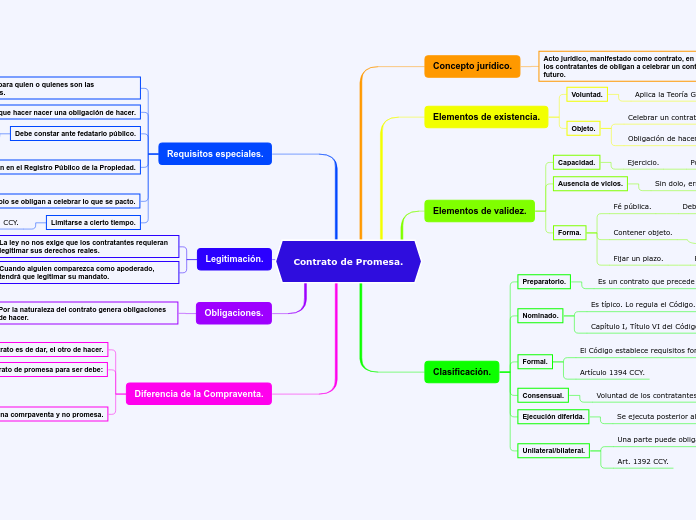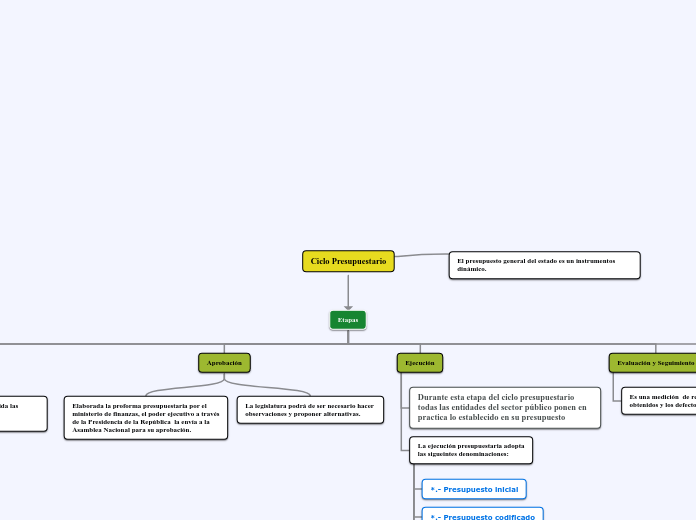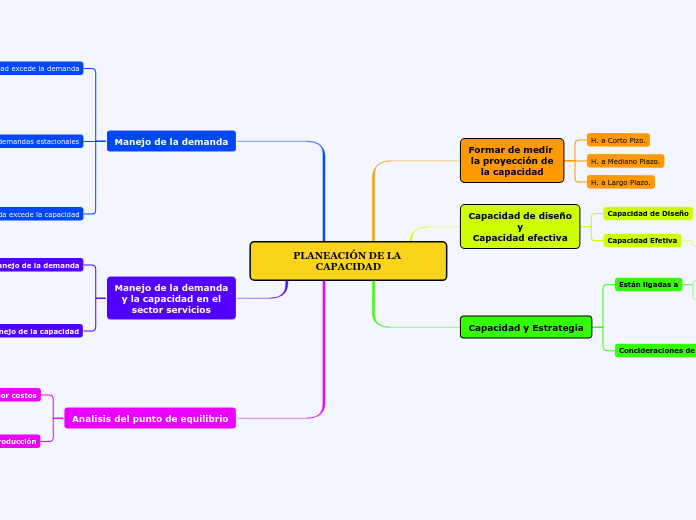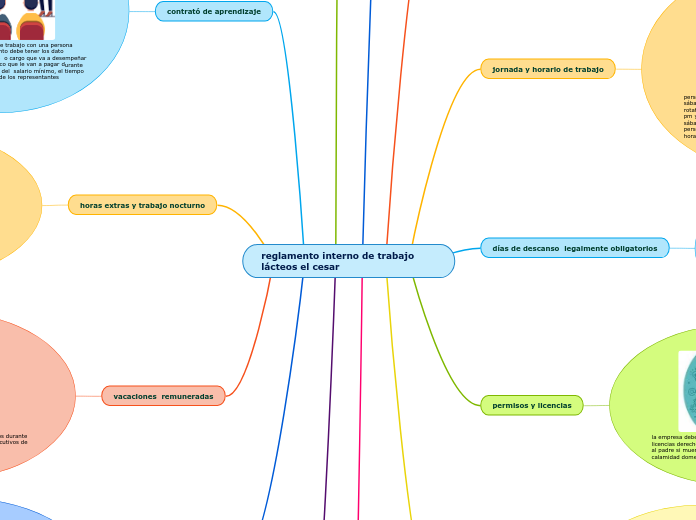Contrato de Promesa.
The part of speech is a category to which a word is assigned according to its syntactic functions. In English the main parts of speech are noun, pronoun, adjective, determiner, verb, adverb, preposition, conjunction, and interjection.
Diferencia de la Compraventa.
A preposition is one of the most exciting parts of grammar. A preposition is used to describe the location of something in relation to something else.
Constituye una comrpaventa y no promesa.
When a preposition consists of more than one word, it is called double preposition.
Se hacer una "preventa".
Se obligan a vender.
Cuando se pacta entrega de dinero o derechos.
El contrato de promesa para ser debe:
Compound preposition consists of two or more words.
Obligarse a hacer.
Un contrato es de dar, el otro de hacer.
When a preposition consists of one word it is called single or simple preposition.
in, at, on, to for, of, from, up, after, over, under, with, etc.
Obligaciones.
An interjection is used to express emotion in a sentence.
Think of other interjections!
Por la naturaleza del contrato genera obligaciones de hacer.
Hcer lo que hayan pactado en el contrato de promesa.
En los términos y condiciones en que hayan pactado.
Hacer, consta en celebrar un contrato.
Legitimación.
An adverb is used to describe a verb, but it can also describe an adjective or another adverb.
Adverbs normally help paint a fuller picture by describing how something happens.
Cuando alguien comparezca como apoderado, tendrá que legitimar su mandato.
A lot, Little, Much
La ley no nos exige que los contratantes requieran legitimar sus derechos reales.
The intensifiers strengthen adverbs adjectives and adverbs and down- toners make them weaker.
down-toners
Fairly, Rather
intensifiers
Extremely, Very
Requisitos especiales.
A numeral is a word or phrase that describes a numerical quantity.
Some theories of grammar use the word 'numeral' to refer to cardinal numbers that act as a determiner to specify the quantity of a noun, for example the 'two' in 'two hats'.
Limitarse a cierto tiempo.
Art. 1394. CCY.
Solo se obligan a celebrar lo que se pacto.
Art. 1393.
Inscripción en el Registro Público de la Propiedad.
Art. 1395 CCY.
En caso de afectar derechos reales.
Art. 1394.
Tiene que hacer nacer una obligación de hacer.
Art. 1391 CCY.
Establecer para quien o quienes son las obligaciones.
First, second..
Clasificación.
A pronoun is a word that can be used in place of a noun, typically after the noun itself has already been stated.
Unilateral/bilateral.
Art. 1392 CCY.
Una parte puede obligarse, o las dos.
Ejecución diferida.
Se ejecuta posterior al acto jurídico.
Consensual.
Voluntad de los contratantes.
Formal.
Demonstrative pronouns are used to demonstrate (or indicate). This, that, these, and those are all demonstrative pronouns.
Artículo 1394 CCY.
El Código establece requisitos formales.
Nominado.
Possessive pronouns are used to show possession. The possessive pronouns are mine, yours, his, hers, ours, and theirs.
Capítulo I, Título VI del Código Civil.
Es típico. Lo regula el Código.
Preparatorio.
The personal pronouns are I, you, he, she, it, we, they. More often than not (but certainly not always), they replace nouns representing people.
Es un contrato que precede a otro.
Elementos de validez.
An adjective is a word that's used to describe a specific noun and to provide more detail to the listener.
Forma.
Fijar un plazo.
Fecha de ejecución del contrato.
Contener objeto.
Obligación de celebrar un contrato, obligación de hacer.
Fé pública.
Debe constar ante fedatario público.
Ausencia de vicios.
Superlative adjectives demonstrate a higher level of comparison between entities.
Sin dolo, error, lesión, temor, alevosía, ventaja.
Capacidad.
Expresses a comparison between two entities or groups of entities in quality or degree.
Ejercicio.
Poder contraer la obligación.
Elementos de existencia.
A noun is defined as a person, place, thing or idea. Proper nouns always begin with a capital letter. Common nouns, which are general words, such as 'cars,' are not capitalized.
Objeto.
Countable nouns are nouns that can be counted, even if the number might be extraordinarily high.
Uncountable nouns are nouns that come in a state or quantity which is impossible to count; liquids are uncountable, as are things which act
like liquids.
Obligación de hacer.
Celebrar un contrato futuro.
Voluntad.
Proper nouns are the names of specific people or places. They should always begin with a capital letter.
Aplica la Teoría General de las Obligaciones.
Concepto jurídico.
A verb is an action word or 'doing' word that signifies movement in some way.
Acto jurídico, manifestado como contrato, en el cual los contratantes de obligan a celebrar un contrato futuro.
An auxiliary verb helps the main (full) verb and is also called a 'helping verb.' With auxiliary verbs, you can write sentences in different tenses, moods, or voices.
Create sentences
You have been practicing hard.









